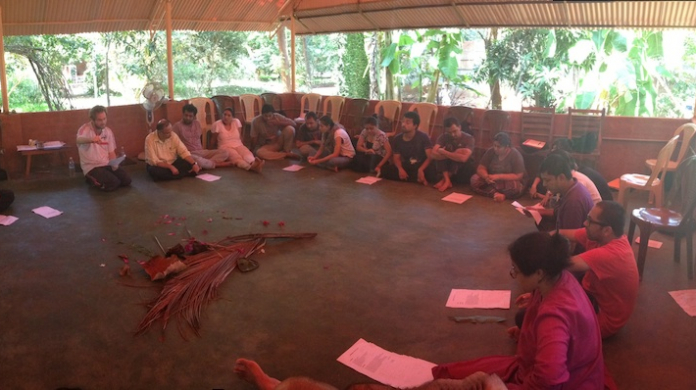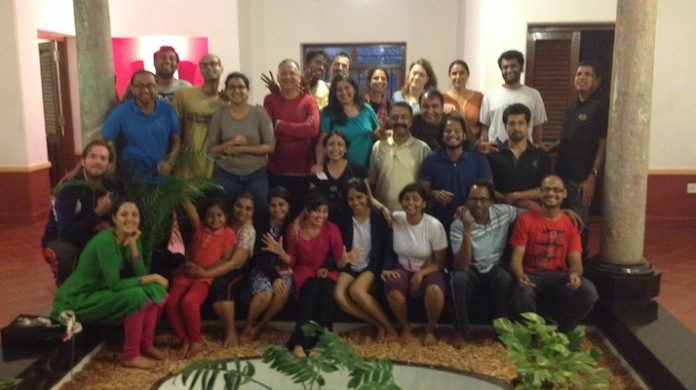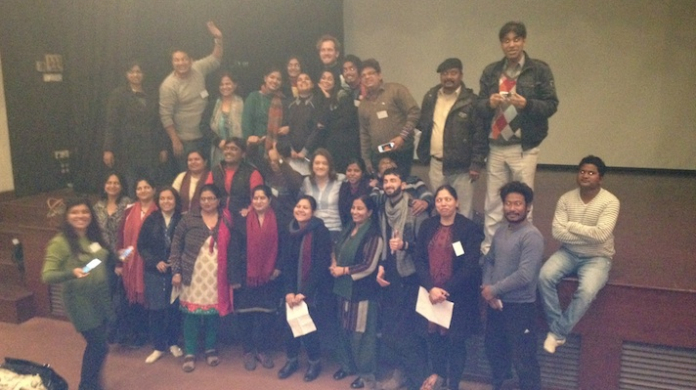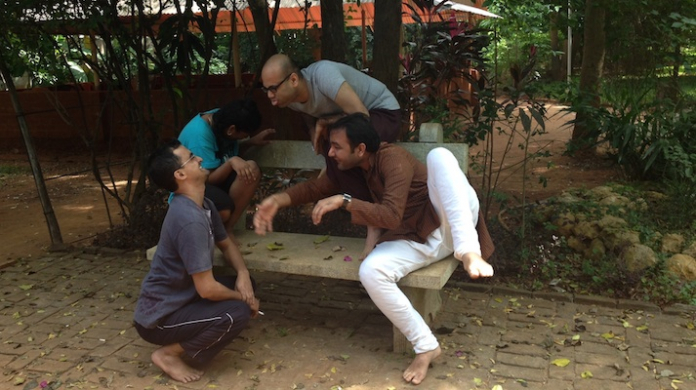Chris White, Education Associate at the RSC, discovered a new side to Shakespeare and a new approach to language during his time in India
Unleashing Shakespeare's words
This wasn’t my first trip to India, but it was arguably my most memorable. Not because of the purple sunbird I saw in Pondicherry or the gecko who watched over me while I slept, but because of the dedication and freedom of thought of the people I was working with. From devoted young teachers – mainly women - in Delhi, so open to change and the possibility of changing others, to the theatre makers in Pondicherry working in different ways with objects and puppets and street children and Shakespeare.
"...the whole place came alive as people ran through the aisles and clambered over the seats as a collective mass"
I was visiting with my colleague and friend Rebecca Gould for an RSC/British Council collaboration where we shared some practical approaches to the teaching of Shakespeare for young people. Many of the approaches and techniques we shared with the participants are drawn directly from RSC rehearsal room practice, which is at the core of the practice of RSC Education, for which Rebecca and I are Associate Practitioners.
In Delhi we were based on the stage of the British Council theatre, but the participants were unwilling to be bound by the restraints of this and so our exercises spilled into the body of the theatre – where the audience would normally sit – and the whole place came alive as people ran through the aisles and clambered over the seats as a collective mass, bringing the words of King Lear to life. Our proposition to the teachers, that they should work with their groups on their feet rather than behind desks, had been well and truly seized upon.
In Pondicherry we worked outdoors, where the feverous night-time world of Macbeth was at odds with the flowers, sunlight and spirit of play.
We looked at the language Lennox uses in "the night has been unruly", and discovered the power of the words lies in the combination of the sounds as much as any literal meaning. We told the whole story of Macbeth in a collective storytelling style using a variety of languages and found ways of introducing A Midsummer Night's Dream to young primary school students by working with found objects from the natural world and tracing Puck and the play's Fairie world to existing Indian folkloric traditions.
In a country where learning by rote forms a considerable part of the curriculum and exams are everything, the challenge will now be for them to take this approach into the classroom, and contest rigidity.
"...the power of the words lies in the combination of the sounds as much as any literal meaning"
Ideas and creative ambition will certainly prove no barrier to this, though. Throughout the course of our time in Pondicherry, people spent time in the evenings working in groups to conceive projects they would like to run. When these were shared on our final day together, we discovered a range of ways that people would like to work with young people and Shakespeare, including working on Measure for Measure and The Taming of the Shrew in Delhi schools to explore notions of gender, anbd mounting a production of Julius Caesar where five different schools would each perform one of the five acts of the play site-specifically within their school. There is a real chance that these projects, among others, will be realised in different parts of the country in the near future.
We hope that we get to work again with this group and we also hope that by unleashing Shakespeare’s words together, we have opened the possibility that young people can be inspired by making these words their own.
Chris White is Education Associate at the Royal Shakespeare Company, and was in India as part of an RSC/British Council project around Shakespeare education. Follow @TheRSC for updates on the RSC's work, and follow @UKTheatreDance for all of the latest blogs, news and opportunities from the British Council Theatre and Dance team.





